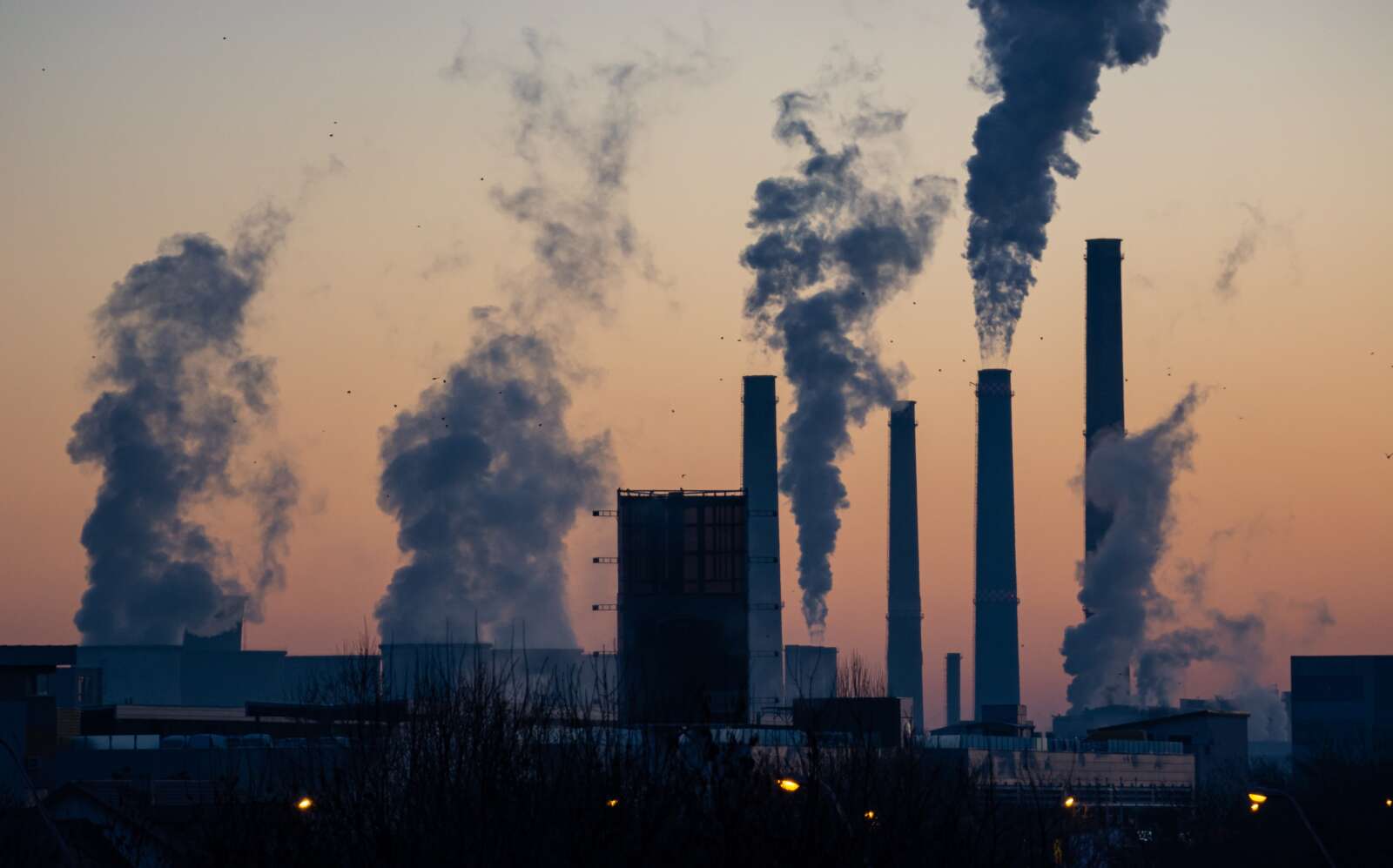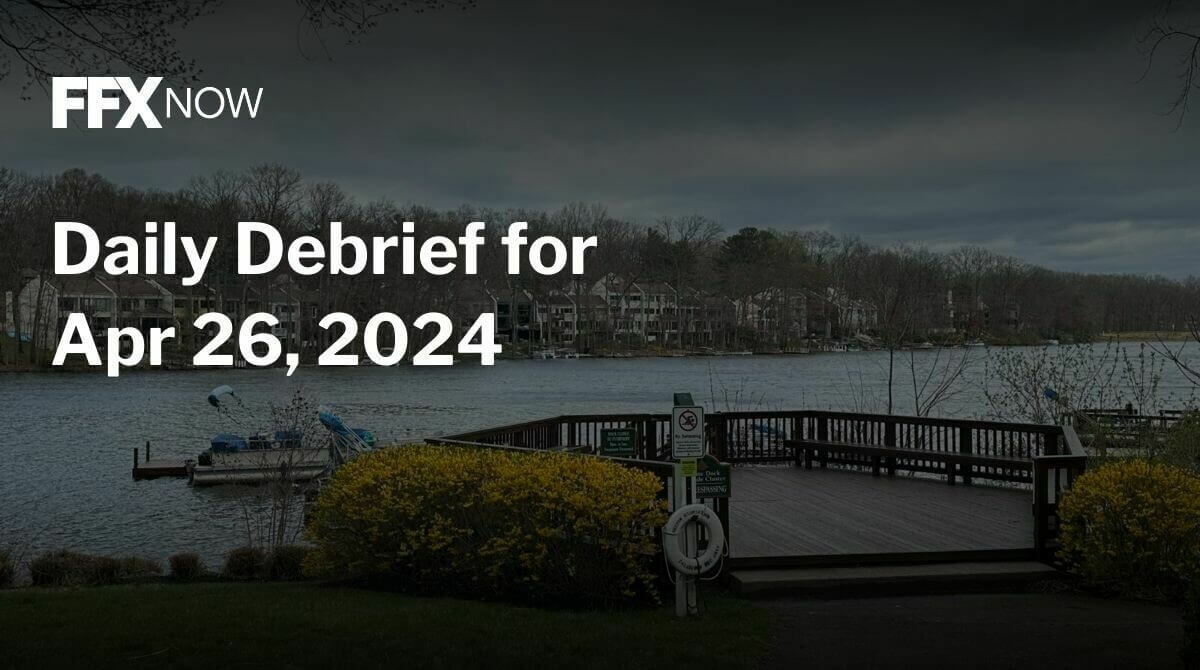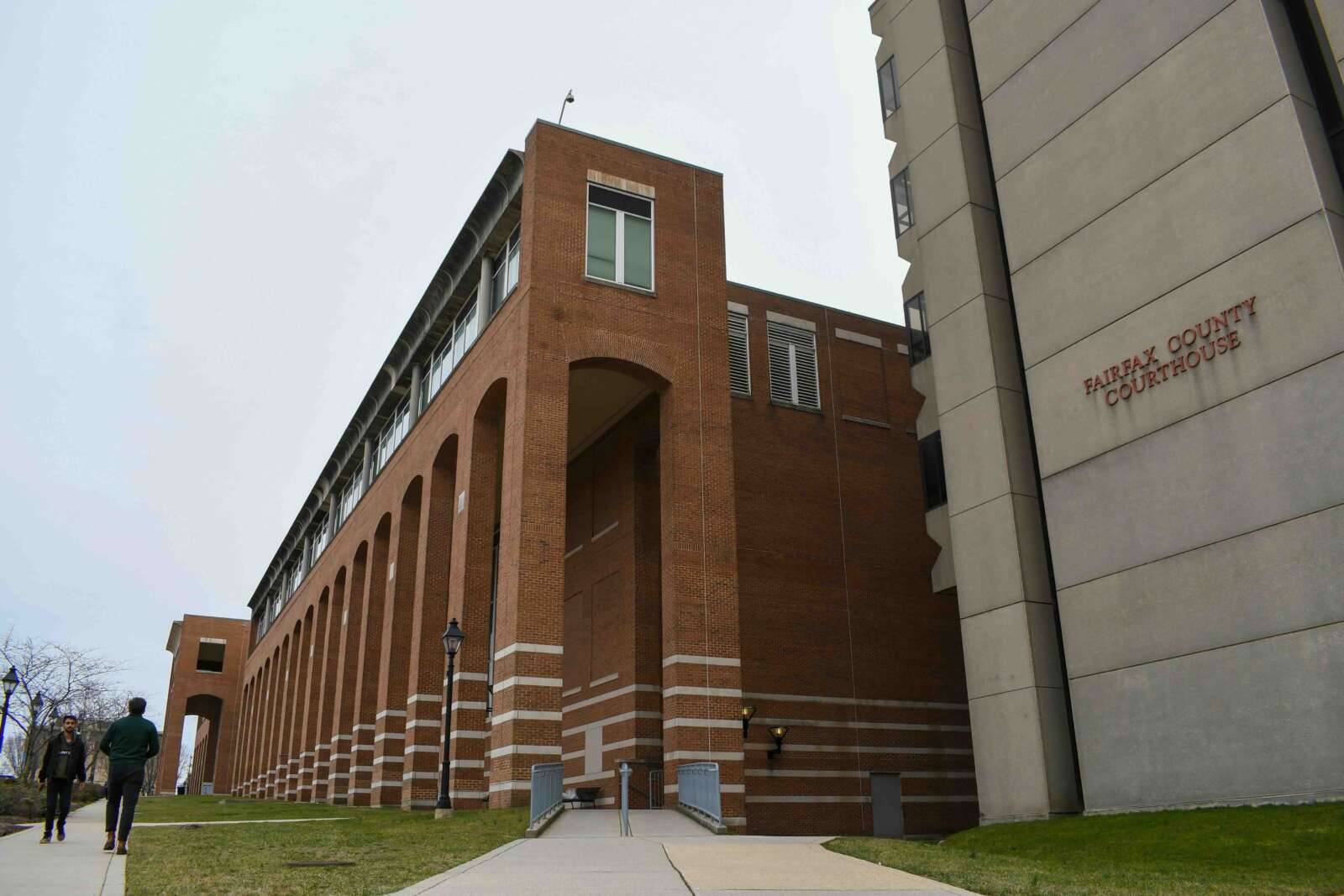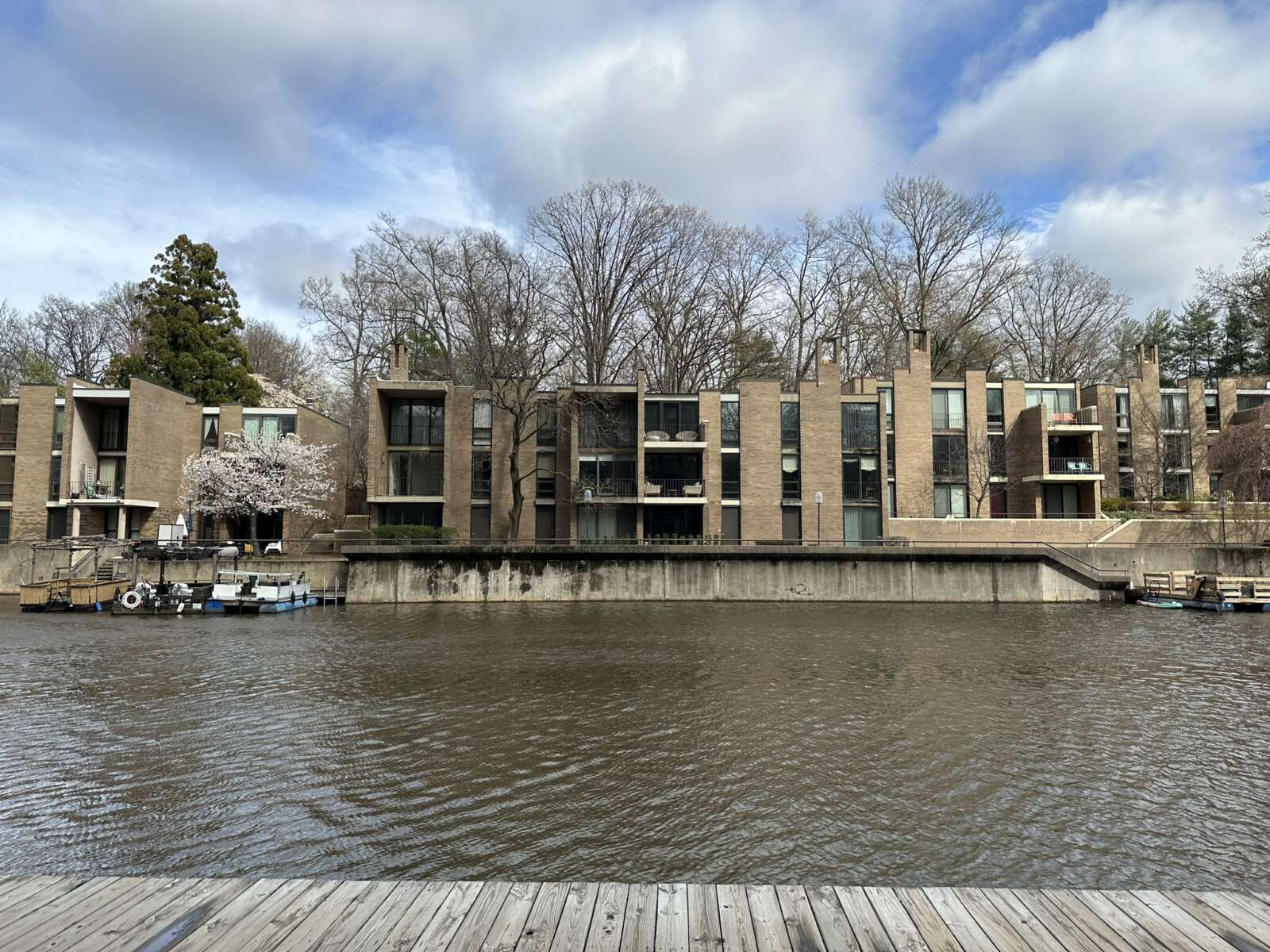
Virginia is beginning to create plans for how to reduce greenhouse gas emissions, the primary driver of climate change, on a state and regional basis thanks to millions of dollars from the federal government.
This June, the U.S. Environmental Protection Agency awarded about $6 million in grants to Virginia’s Department of Environmental Quality, regional planning organizations in Northern Virginia, Richmond and Hampton Roads and the Monacan Indian Nation to create two plans.
One, the Priority Climate Action Plan, will identify projects that can immediately start reducing greenhouse gas emissions. The other, the Comprehensive Climate Action Plan, aims to craft long-term strategies to achieve reductions.
“This grant will help us plan for reducing climate pollution and promoting climate resilience in the commonwealth, both of which are central to our mission,” said DEQ Director Mike Rolband at a webinar last week. “Just as changing climatic conditions impact all of Virginia, these changes also impact all of the environmental programs here at DEQ. “
The funding for the Climate Pollution Reduction Grants program comes from the Inflation Reduction Act, major federal legislation passed last year that aims to spur investments in climate technologies.
The priority plan is due in March 2024. Projects included in the plan will be eligible to compete for an additional $4.6 billion round of grants for implementation.
The comprehensive plan is due later, in July 2025, and will involve broader strategies for reducing emissions from the transportation, electricity and other sectors, as well as an analysis of the benefits of greenhouse gas reductions.
Both plans require that officials consider the benefits of reductions for low-income and disadvantaged communities and monitor emissions.
Statewide plan
Virginia’s Department of Environmental Quality will be the lead agency coordinating the state’s planning process, which will include the Virginia Department of Transportation, Department of Housing and Community Development, Department of Conservation and Recreation and other agencies.
Virginia has already taken a number of significant steps to reduce greenhouse gas emissions, many of which DEQ cited in its application to the EPA.
The 2020 Virginia Clean Economy Act seeks to decarbonize the state’s electric grid by 2050 by setting renewables development targets for regulated utilities and mandating that increasing portions of their generation be carbon-free. In 2021, Virginia also tied its vehicle emissions standards to California’s rather than remaining on the federal standard in an effort to drive greater adoption of electric vehicles, and the state is planning to use National Electric Vehicle Infrastructure program funds for charging infrastructure buildouts.
Additionally, Virginia since 2021 has participated in the regional carbon market known as the Regional Greenhouse Gas Initiative, or RGGI. That program requires electricity producers to pay for allowances for each ton of carbon they emit and returns the revenues to the state for energy efficiency and flood preparedness programs.
Most state-level efforts, however, were initiated under Democratic control of government, which disappeared when Gov. Glenn Youngkin won the governorship and Republicans retook the House of Delegates in 2021. The state energy plan unveiled by Youngkin last fall calls for the continued use of natural gas as part of an “all of the above” approach to meet energy needs, and the administration is pushing for Virginia to leave RGGI, despite legal opposition to the move.
At the webinar hosted by DEQ to explain the planning process, Tom Ballou, DEQ’s air data analysis and planning director, noted that transportation is Virginia’s largest greenhouse gas contributor, responsible for 42% of the state’s emissions. According to Virginia’s greenhouse gas inventory from 2021, that is followed by the electric power sector, at 21%, and then the industry, commercial, residential and agriculture sectors.
Of the emissions in Virginia, 80% are from carbon dioxide, followed by methane at 12%. If carbon dioxide is removed, methane, a greenhouse gas that is 25 times more potent than carbon dioxide at trapping heat in the atmosphere, would constitute 62% of Virginia’s emissions.
“This type of data analysis could be important during the planning process if reducing high-potency emissions, one of DEQ’s goals, is further explored,” said Ballou.
Data centers, which have boomed in Virginia and led Dominion Energy to alter its long-term plans to account for rising grid demand, are another part of the state’s planning discussion.
“These data centers rely on fossil fuel generators to supply emergency backup power when needed,” DEQ’s work plan states. The Climate Pollution Reduction Grants will help “ensure that the development and siting of data centers is done in an environmentally responsible manner through the promotion of Tier IV generators, micro grids, innovative technologies (hydrogen), and streamlined transmission line approvals.”
DEQ is looking to increase staffing for the planning process and already has brought on one person. The agency will also be working with local governments to include their desires in the priority plan.
Regional planning
The three regional authorities that received funding include PlanRVA, the Metropolitan Washington Council of Governments and the Hampton Roads Planning District Commission. The Monacan Indian Nation, which also received funding, is based in the Lynchburg area.
Each of the regional planning groups are following a similar process to DEQ that seeks to gather data while incorporating climate-related policies and plans they’ve previously adopted into their strategies.
In Richmond, that means using the RVAGreen 2050 sustainability plan to encourage more efficient building operations, implement carbon sequestration strategies and adopt zero-waste practices.
“The Richmond region, like many other metropolitan areas, is a fast-growing hub with a vibrant economy. But it also faces significant climate-related challenges, especially extreme heat, increased precipitation, and sea level rise,” said Nicole Keller, resilience planner at PlanRVA. “We will work alongside Virginia DEQ and the other awarded metro areas across the state to undertake this significant planning effort. Climate pollution and greenhouse gas reduction is an issue that is much larger than our local footprint.”
Similarly, MWCOG will be relying on its Climate and Energy Action plan to reduce emissions by 2030. MWCOG will oversee the Northern Virginia efforts, which will encompass other Virginia counties as far west as Warren County, as well as the District of Columbia and Maryland.
At a recent MWCOG Transportation Board meeting, Climate & Energy Program Director Jeff King said the creation of the priority plan and simultaneous application for the additional implementation funding made for a “really interesting grant. Haven’t seen one quite like it.”
Hampton Roads Planning District Commission meanwhile is seeking a consultant to help with the planning process.
“We are just getting started,” said Whitney Katchmark, the commission’s principal water resources planner. “Initially, we will build on locality ideas and support green energy development.”
Attempts to reach the Monacan Indian Nation for comment were unsuccessful.
Photo via Ella Ivanescu/Unsplash. This article was reported and written by the Virginia Mercury, and has been reprinted with permission.
Recent Stories

The Gillion Academy’s Home School Basketball Program begins Fall 2024 for 7th – 12th Grade student-athletes to complete their online academic studies in a supervised and focused setting while receiving elite training from our professional basketball trainers at The Gillion Basketball Academy, a state of the art training facility in Springfield, Va. We have developed over 200 college athletes and placed over 50 players in the NBA and pro leagues overseas and provide the same level of training for our student-athletes.
We will have a virtual Open House Zoom on May 6th at 7:30PM so please go to our website to learn more about us and to fill out an interest form and register for the event and learn about the top training facility in the DMV area.
Any questions please email our Director at philip.budwick@gil-lionbasketballacademy.com.

For many remote workers, a messy home is distracting.
You’re getting pulled into meetings, and your unread emails keep ticking up. But you can’t focus because pet hair tumbleweeds keep floating across the floor, your desk has a fine layer of dust and you keep your video off in meetings so no one sees the chaos behind you.
It’s no secret a dirty home is distracting and even adds stress to your life. And who has the energy to clean after work? That’s why it’s smart to enlist the help of professionals, like Well-Paid Maids.
Pedal with Petals Family Bike Ride
Join us on Saturday, May 11th and ride into spring during our Pedal with Petals Family Bike Ride. Back for its second year, Pedal with Petals is going to be bigger than ever. This year’s event will include both an
Encore Creativity for Older Adults at Capital One Hall
Encore Creativity for Older Adults is pleased to raise the curtain and welcome community members to its spring concert at Capital One Hall in Tysons, VA on May 4, 2024. The concert, which starts at 3 PM, will bring hundreds







